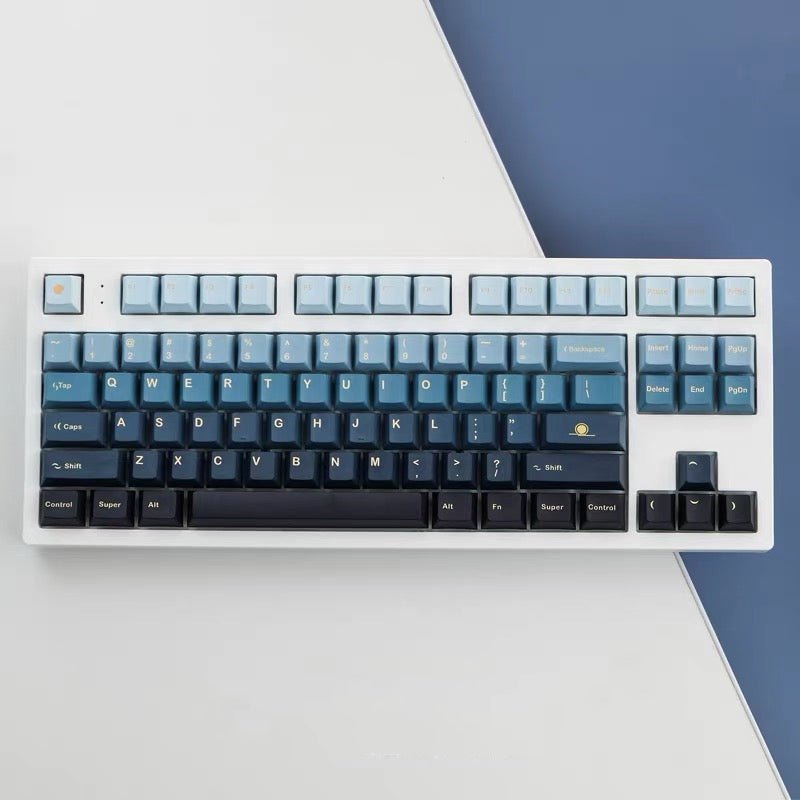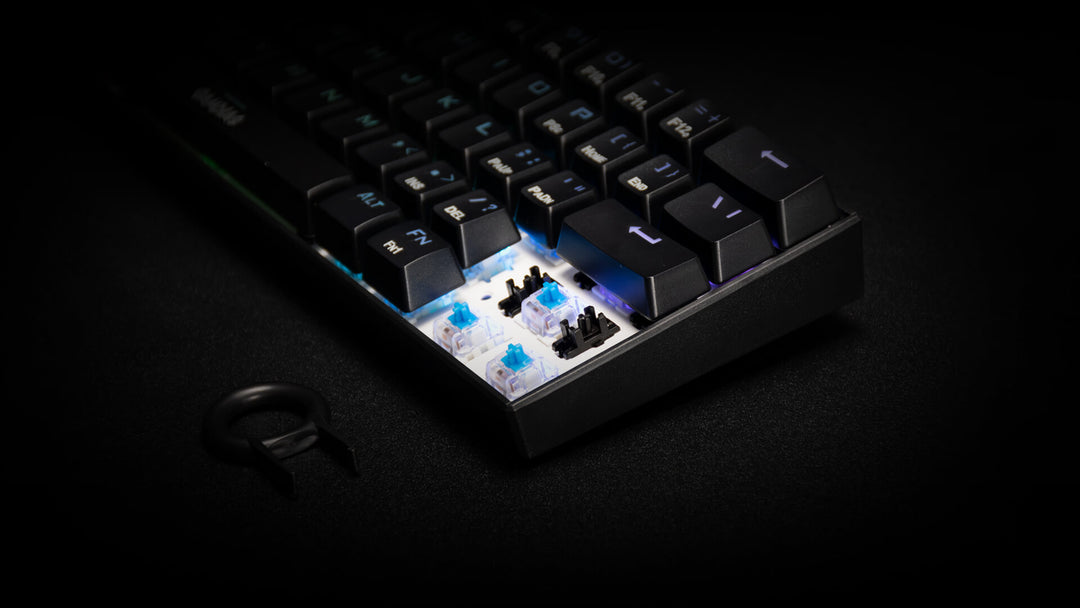Choosing the right keyboard size can be a daunting task, especially with the plethora of options available in the market. The size of a keyboard can significantly impact your typing experience, productivity, and even your health. In this blog post, we will guide you through the factors to consider when choosing the right keyboard size.
-
The Size of Your Desk The size of your desk is a crucial factor to consider when selecting a keyboard size. If you have a small desk, then you might want to consider a compact keyboard. On the other hand, if you have a large desk, you might opt for a full-size keyboard. A full-size keyboard has a numeric keypad, which can be useful if you frequently use numbers.
-
Your Typing Style Your typing style is another crucial factor to consider when choosing a keyboard size. If you have large hands and prefer a more spaced-out typing experience, then you might consider a full-size keyboard. However, if you have small hands and prefer a more compact typing experience, then a smaller keyboard might be the better option.
-
Ergonomics Ergonomics is a significant factor to consider when selecting a keyboard size. A keyboard that is too small or too large can result in discomfort, pain, and even injury. An ergonomic keyboard is designed to reduce the strain on your wrists and hands, thus reducing the risk of injury. If you spend long hours typing, then an ergonomic keyboard is a must-have.
-
Portability If you are always on the go, then you might consider a portable keyboard. A portable keyboard is compact and lightweight, making it easy to carry around. However, it might not be as comfortable to type on as a full-size keyboard.
-
Budget Your budget is also an essential factor to consider when selecting a keyboard size. Full-size keyboards tend to be more expensive than compact keyboards. However, if you are willing to spend more, then a full-size keyboard might be the better option.
In conclusion, when choosing a keyboard size, you need to consider the size of your desk, your typing style, ergonomics, portability, and your budget. Ultimately, the right keyboard size is the one that feels comfortable to use and meets your typing needs.
Certainly! Here is an updated version of the blog post on how to choose the right keyboard size, with additional information on different types of keyboards and their specifications:
Choosing the right keyboard size can significantly impact your typing experience, productivity, and even your health. With so many different types and sizes of keyboards available in the market, it can be overwhelming to select the perfect one for your needs. In this blog post, we will guide you through the factors to consider when choosing the right keyboard size and the different types of keyboards available.
Factors to Consider When Choosing the Right Keyboard Size:
-
The Size of Your Desk: The size of your desk is a crucial factor to consider when selecting a keyboard size. If you have a small desk, then you might want to consider a compact keyboard. On the other hand, if you have a large desk, you might opt for a full-size keyboard. A full-size keyboard has a numeric keypad, which can be useful if you frequently use numbers.
-
Your Typing Style: Your typing style is another crucial factor to consider when choosing a keyboard size. If you have large hands and prefer a more spaced-out typing experience, then you might consider a full-size keyboard. However, if you have small hands and prefer a more compact typing experience, then a smaller keyboard might be the better option.
-
Ergonomics: Ergonomics is a significant factor to consider when selecting a keyboard size. A keyboard that is too small or too large can result in discomfort, pain, and even injury. An ergonomic keyboard is designed to reduce the strain on your wrists and hands, thus reducing the risk of injury. If you spend long hours typing, then an ergonomic keyboard is a must-have.
-
Portability: If you are always on the go, then you might consider a portable keyboard. A portable keyboard is compact and lightweight, making it easy to carry around. However, it might not be as comfortable to type on as a full-size keyboard.
-
Budget: Your budget is also an essential factor to consider when selecting a keyboard size. Full-size keyboards tend to be more expensive than compact keyboards. However, if you are willing to spend more, then a full-size keyboard might be the better option.
Different Types of Keyboards and their Specifications:
-
Full-Size Keyboard: A full-size keyboard is the most common type of keyboard. It has 104 keys and includes a numeric keypad, function keys, and arrow keys. A full-size keyboard is ideal for users who require a lot of number input and data entry.
-
Compact Keyboard: A compact keyboard is smaller than a full-size keyboard and typically has 60% to 75% of the keys found on a full-size keyboard. A compact keyboard is ideal for users who want a more minimalist look and have limited desk space.
-
Tenkeyless Keyboard: A tenkeyless keyboard, also known as a TKL keyboard, is a keyboard without a numeric keypad. It has 87 to 88 keys and is more compact than a full-size keyboard. A tenkeyless keyboard is ideal for users who want a more ergonomic setup, as it allows for a more natural position for the mouse.
-
Ergonomic Keyboard: An ergonomic keyboard is designed to reduce the strain on your wrists and hands, thus reducing the risk of injury. It typically has a split design, with the keys arranged in two halves to allow for a more natural hand position. An ergonomic keyboard is ideal for users who spend long hours typing.
-
Mechanical Keyboard: A mechanical keyboard is a type of keyboard that uses individual mechanical switches for each key. It offers a tactile and audible feedback when you press a key, which can improve typing accuracy and speed. A mechanical keyboard is ideal for users who prioritize typing experience and want a unique gaming experience.




